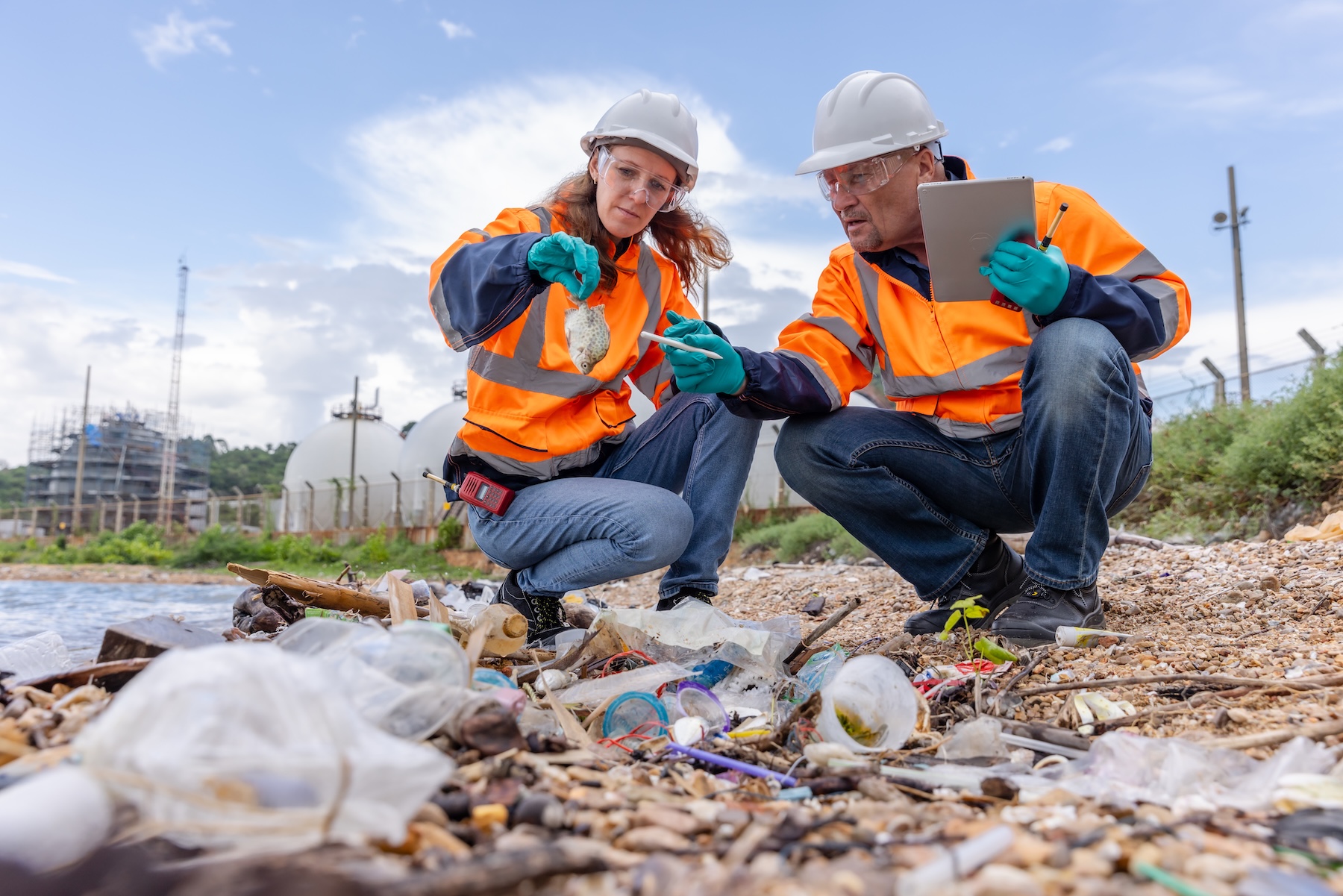At SEMS, Inc., we specialize in delivering comprehensive hazardous waste permitting and disposal solutions. Our expert team is dedicated to ensuring your operations meet all regulatory requirements while maintaining environmental safety and operational efficiency. With our detailed approach, industry expertise, and commitment to compliance, SEMS is your trusted partner for hazardous waste management. Learn what makes SEMS the right choice for hazardous waste permitting and disposal services across the Gulf Coast and beyond.

Handling hazardous waste requires careful adherence to regulatory requirements, starting with obtaining proper permits. SEMS, Inc. provides guidance and assistance in securing the following types of hazardous waste permits:
TSDF permits are essential for facilities that treat, store, or dispose of hazardous waste. These permits ensure comprehensive oversight of how waste is managed, highlighting safety procedures and long-term environmental protection.
Businesses that generate hazardous waste, including Large-Quantity Generators (LQGs) and certain Small-Quantity Generators (SQGs), need generator permits. These permits regulate production quantities and storage timeframes, ensuring safe practices from the point of generation.
Companies responsible for transporting hazardous waste to approved disposal or treatment locations must hold transporter permits. This helps confirm that waste transport complies with safety regulations and environmental standards. Our team works hand-in-hand with clients to determine the specific permits required and guides every step of the application process.
Whether you need hazardous waste, solid waste, or environmental permitting services, SEMS, Inc. is ready to help guide you through the complexities of the process. SEMS, Inc. simplifies this by managing the following critical steps:
Facilities are required to submit in-depth applications detailing their hazardous waste management plans, treatment methods, and compliance frameworks. We can ensure all submissions are thorough and accurate, minimizing delays.
Regulatory agencies assess the potential impact of your waste management practices on human health and the environment. SEMS assists in preparing detailed environmental assessments to support positive reviews.
After approval, facilities must comply with stringent operational and reporting standards. SEMS, Inc. helps you establish compliant practices and perform ongoing monitoring to avoid violations.
Our end-to-end support streamlines the permitting process, enabling clients to focus on their core operations without compromising regulatory compliance.
Hazardous waste disposal involves the safe treatment, handling, and removal of materials that pose risks to health or the environment. This critical process applies to a wide range of industries, including manufacturing, healthcare, construction, and chemical production.
Proper disposal is essential not only for compliance but also to safeguard communities and ecosystems from potential hazards.
Hazardous waste is categorized by the U.S. Environmental Protection Agency (EPA) into four key types. Understanding the characteristics of these categories helps businesses determine the best management practices.
By identifying the waste type, SEMS ensures that each material is handled through the appropriate disposal method.
Safe disposal methods are critical for minimizing risks. SEMS, Inc. employs industry-approved techniques to manage hazardous waste effectively, including the following methods.
SEMS carefully evaluates site conditions and waste classifications to identify the most effective disposal strategies for your needs.
Compliance with the Resource Conservation and Recovery Act (RCRA) is non-negotiable for businesses handling hazardous waste. Companies must:
SEMS, Inc. brings a wealth of experience to support clients in meeting these regulatory challenges, reducing risk, and maintaining environmental accountability.
SEMS, Inc. provides comprehensive solid waste management and permitting services, helping businesses and organizations handle waste responsibly while protecting environmental and public health. Effective solid waste management is critical to reducing pollution, conserving resources, and ensuring sustainability for future generations.
SEMS employs advanced methods to ensure the effective handling, disposal, and reduction of solid waste. These include:
Each method is carefully selected based on the type of waste, environmental goals, and regulatory requirements.
Effective solid waste management requires strict adherence to local, state, and federal regulations. Businesses must:
SEMS, Inc. offers expert guidance in interpreting these regulations and ensures that all processes are fully compliant, reducing the risk of penalties and environmental harm.
SEMS, Inc. provides tailored solid waste management solutions designed to meet the unique needs of each client while prioritizing environmental sustainability. Our services include:
Our expertise provides seamless regulatory compliance and efficient waste handling, enabling clients to focus on their core operations with confidence in their environmental stewardship.
With a team of seasoned environmental experts, SEMS, Inc. provides full-service support for:
From determining which permits you need to guiding you through disposal methods that prioritize safety and efficiency, we ensure complete regulatory compliance and industry-leading solutions. Whether coordinating with regulators, maintaining detailed records, or delivering sustainable waste management options, SEMS is the partner you can trust.
Contact us today to discuss your hazardous waste needs and discover how our expertise can safeguard your operations while protecting the environment. If you need emergency response assistance, call us at 1-800-924-7367.